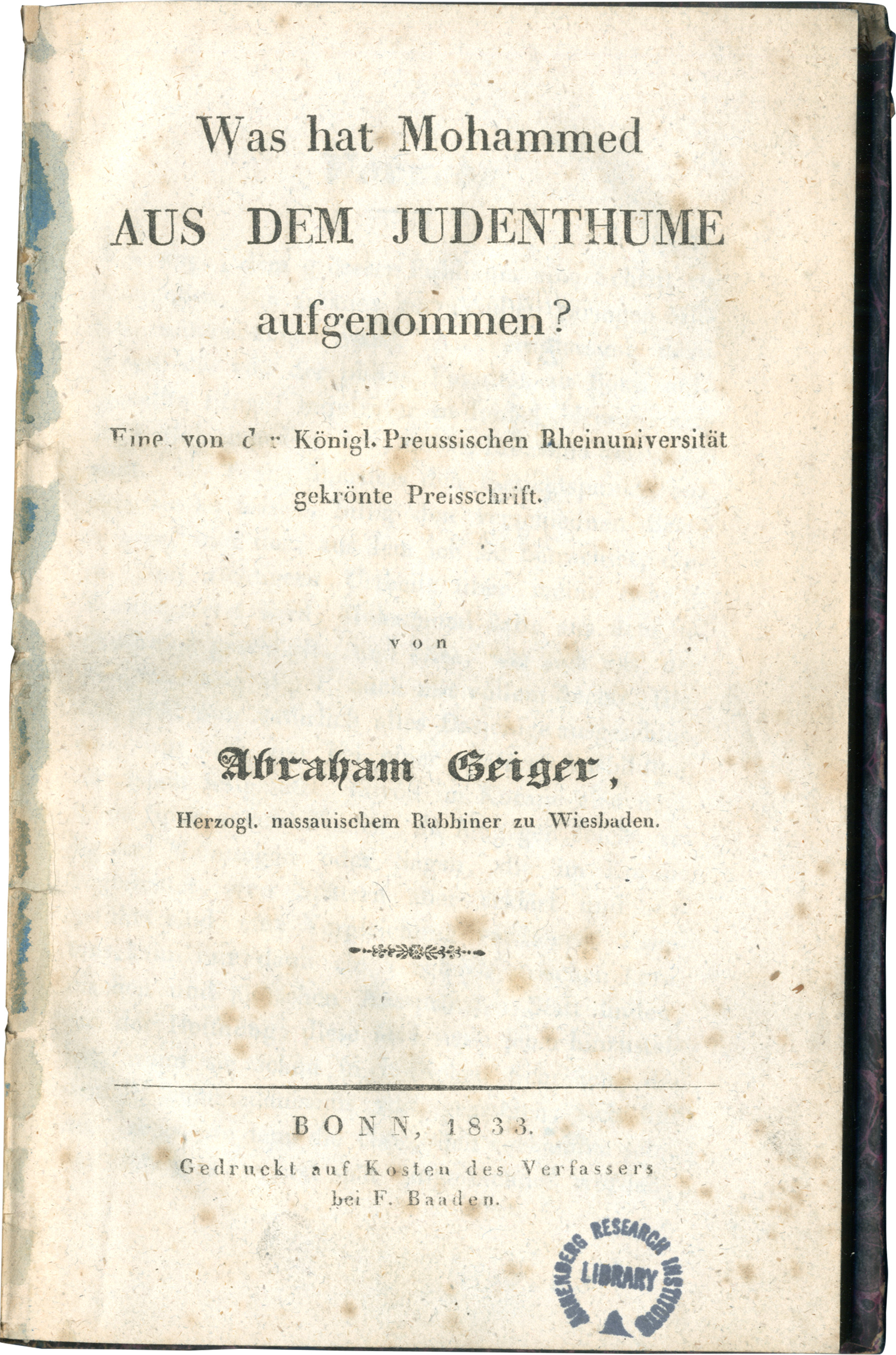In 1833, Abraham Geiger published Was hat Mohammed aus dem Judenthume aufgenommen? (“What did Muhammad borrow from Judaism?”). The essay, originally written in Latin and submitted to the Philosophical Faculty of the University of Bonn the previous year, was awarded a prize by the Faculty in August of 1832. Geiger's work has rightly been judged a methodological breakthrough and a turning point in European scholarship about the origins and sources of Islam. Geiger was the first scholar to "historize" the Qurʾān, i.e. to read the text critically in light of the historical contexts in which it was written. For example, Geiger scrutinizes the vocabulary of the Qur’ān in order to identify words and ideas which were, as he assumed, borrowed from Judaism and earlier Jewish traditions. Although some of Geiger's assumptions may today appear naïve and judgmental, his major contribution was to approach the relationship between the two religions conceptually rather than polemically, and systematically rather than haphazardly. The book aroused something of a stir among Geiger's Christian colleagues by portraying the Prophet Muhammad as "a sincere religious enthusiast (schwärmer) who was himself convinced of his divine mission" and not as a skilled imposter and charlatan, as viewed by Silvestre de Sacy, the leading Arabist of the time. But the main importance of Geiger's Was hat Mohammed aus dem Judenthume aufgenommen? lies in the fact that it has for the first time posed questions that stand in the center of Qur’ānic research till today.
Which exhibit?
Page: Featured item
Order on exhibit page
4
Turn off the details link on the exhibit page
Off
